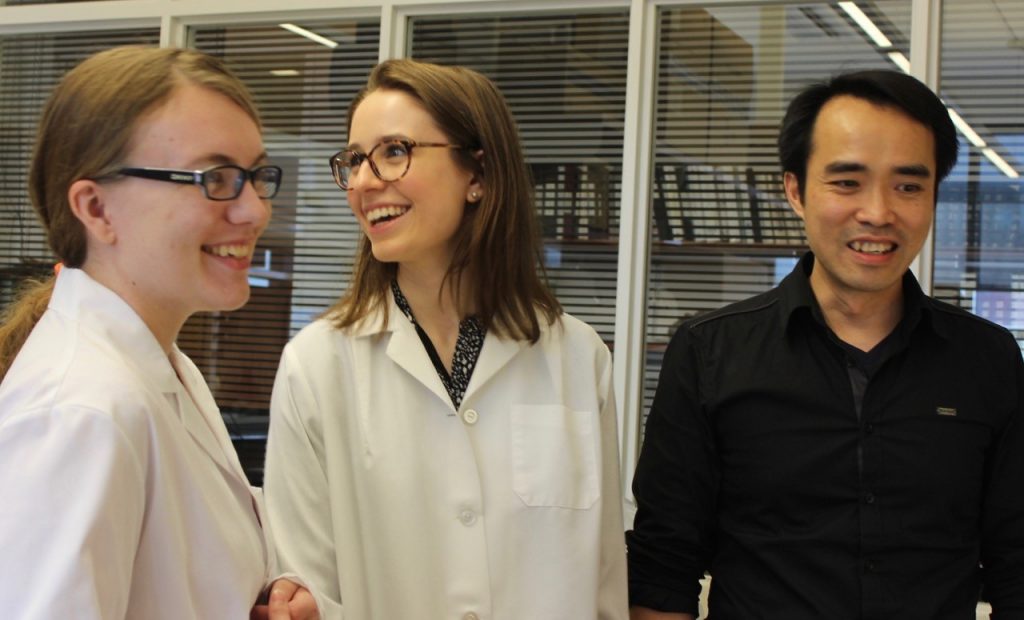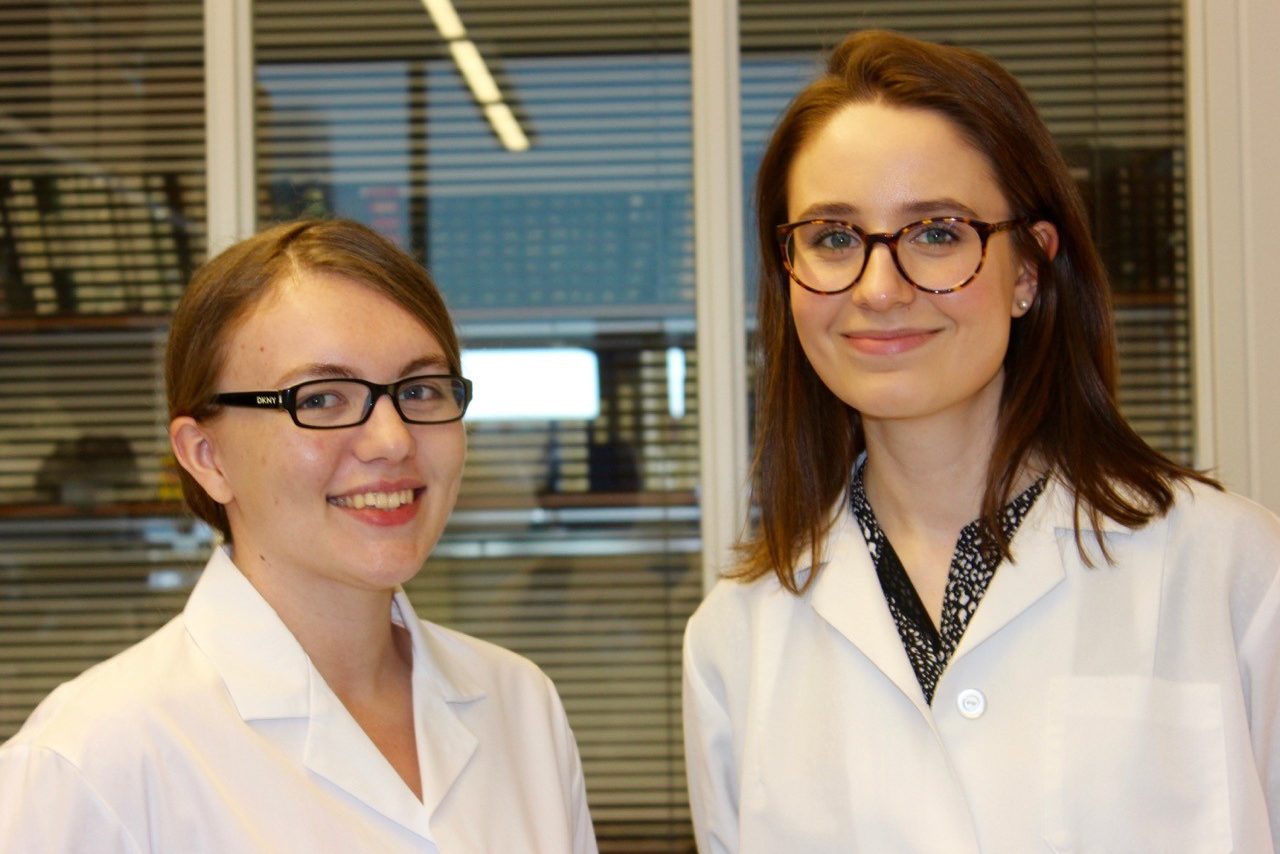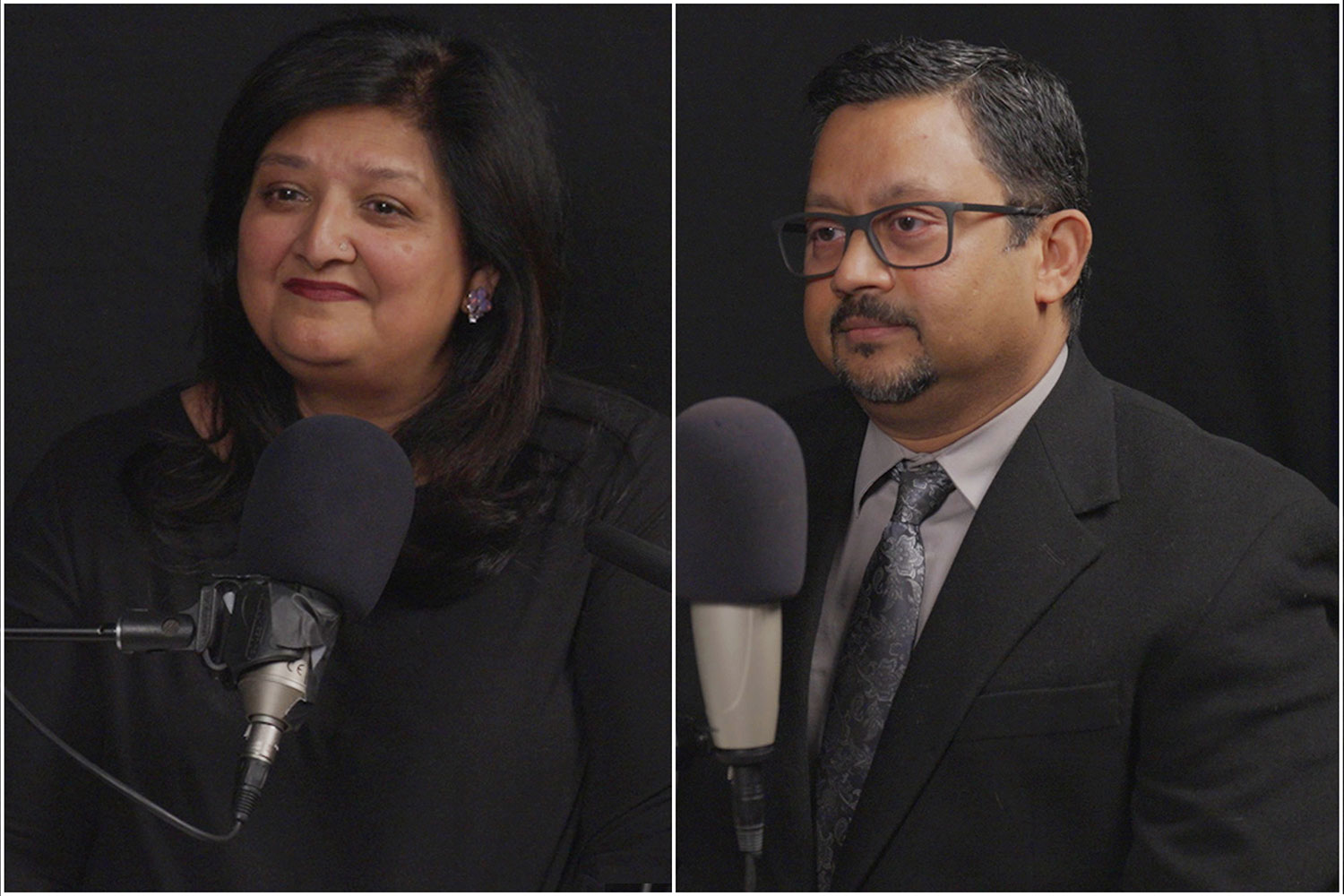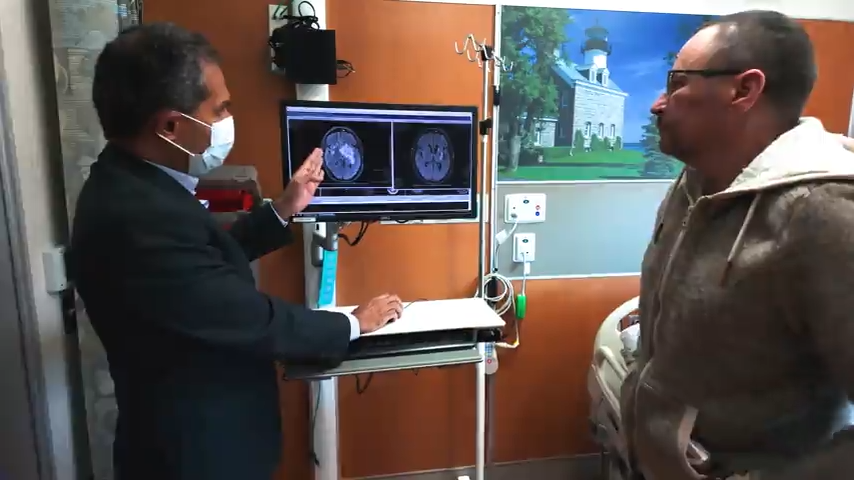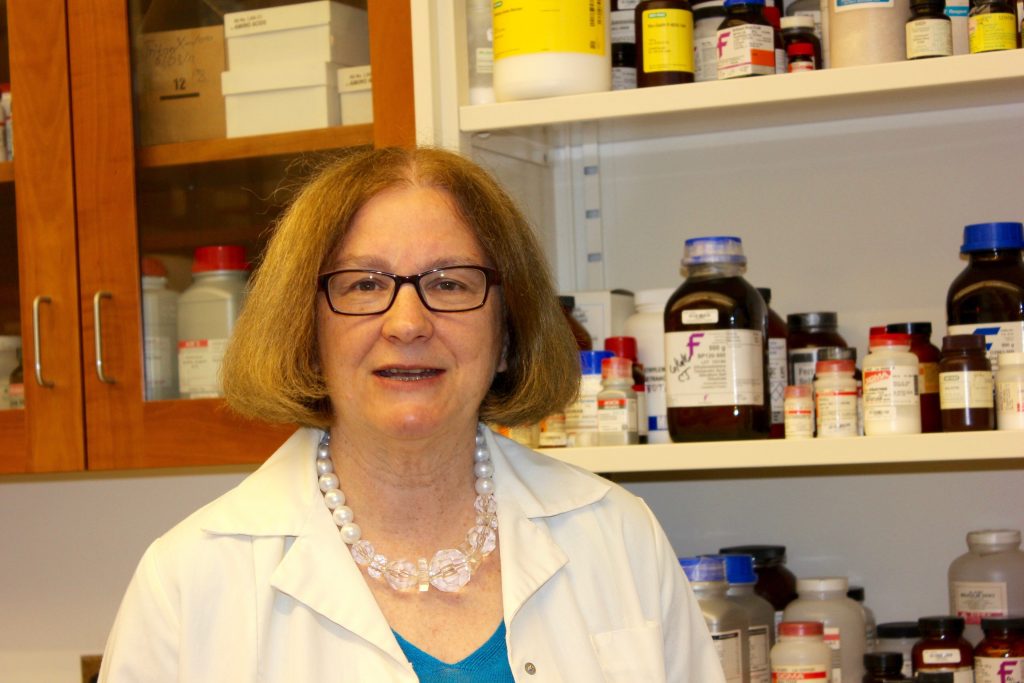
Debra Kendall is Board of Trustees Distinguished Professor in Medicinal Chemistry in the School of Pharmacy. But when she talks about ‘her students,’ she is not only referring to those who are planning to pursue careers in pharmacy, although they are an important part of the mix.
Kendall has developed a program that welcomes students from a variety of undergraduate majors into her fold because, as she puts it, “In real life, we don’t live in silos.” She places these students under the watchful eyes of graduate students and postdocs already working in her lab. They provide hands-on guidance, but it is Kendall who oversees all their work and husbands their research efforts.
Some of her recent protégés include students with backgrounds in pharmacy, molecular and cell biology, physiology and neurobiology, and even health care management in the School of Business. They were hand-picked by Kendall because they demonstrated traits common to research scientists everywhere: They were curious. They liked a challenge. And they wanted answers, even if those answers weren’t the ones they expected.
Kendall’s lab on the sixth floor of the Pharmacy/Biology Building concentrates on the physical and biochemical properties of G-protein coupled receptors (GPCRs). This includes activating GPCRs, downstream signaling including gene expression, and the involvement of GPCR coupling proteins in that process. Her research also includes seminal work on cannabinoid receptors and biased signaling.
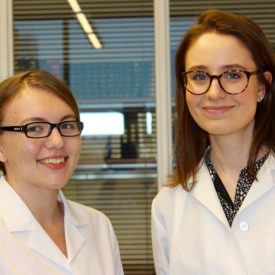
One of the recent students who benefited from her philosophy of inclusion is Ashley Hine ’17 (CLAS), an honors student with a double major in physiology and neurobiology and molecular and cell biology. A Presidential Scholar, she received a stipend to work in Kendall’s lab last summer, and continued her work through the academic year.
During her time in Professor Kendall’s lab, Hine was involved in collaborative research with Bristol-Myers Squibb that resulted in the identification of promising CB2 selective lead compounds that may possess therapeutic potential for the treatment of chronic pain and inflammatory conditions, and additionally are rare additions to the pharmacological toolkit available in the field.
She capped her senior year by receiving the Honors Award in Life Sciences bestowed by the University’s Biology Honors Committee. This award is presented to a graduating senior with excellent academic performance, as well as research experience in a department outside of the recipient’s major.
Hine has accepted a position as a research associate in the Department of Microbiology at the New York University School of Medicine, where she will be involved in research that studies the interaction of the gut microbiota and modulation of the host immune system involved in inflammatory bowel disease, including Crohn’s disease and ulcerative colitis. Once she has established a diverse repertoire of research experience, she plans to apply to a combined MD/Ph.D. program.
Finding success
Kendall says many of the students who apply to work in her lab are doing so not because their future plans will necessarily include working on any of her research interests. Instead, she says, they come to gain additional hands-on lab experience in a supportive environment where a final grade is not an issue. In fact in some cases, she sets up scenarios where the less experienced students are all but guaranteed to find success doing experiments, as long as they follow protocol.
But there are exceptions. Caitlin Jagla ’17 (CLAS) used her personal interests and class experience from her major in molecular and cell biology, and applied them to the work done in Kendall’s lab.
Using a novel technique called proximity ligation assay, she investigated the combined structure of the OX1 receptor and the CB1 receptor – a focus of the lab – in the development of alternatives to opioid pain medications.
Her research proposal earned her a prestigious IDEA Grant in fall 2015, and now she is set to begin Ph.D. studies in biomedical sciences at UConn Health in the fall.
“I truly believe that the independent nature of my project and the fact that I was wrestling with the development of a method novel to the lab was integral to my growth as a scientist and my subsequent acceptance to graduate school,” says Jagla.
Another benefit of working in Kendall’s lab, she adds, was her mentor’s experience of being a woman in a STEM field.
Kendall says she owes a lot of her teaching and mentoring philosophy to the time she spent at the Jackson Labs (JAX) in Bar Harbor, Maine, at a time when it was unusual to see a woman in a lab coat doing original research.
“We often hear about sexism in the STEM fields,” says Kendall, “but at JAX everyone was treated equally, and that’s what I’ve always expected in my lab. My students have always known that respect for science and respect for their colleagues is non-negotiable, and that’s what I’ve always gotten from them.”
Kendall, who originally came to UConn in 1989 to teach in the College of Liberal Arts and Sciences, has been on the faculty of the School of Pharmacy since 2010, and is a staunch supporter of the pharmacy students who pass through her classroom and laboratory.
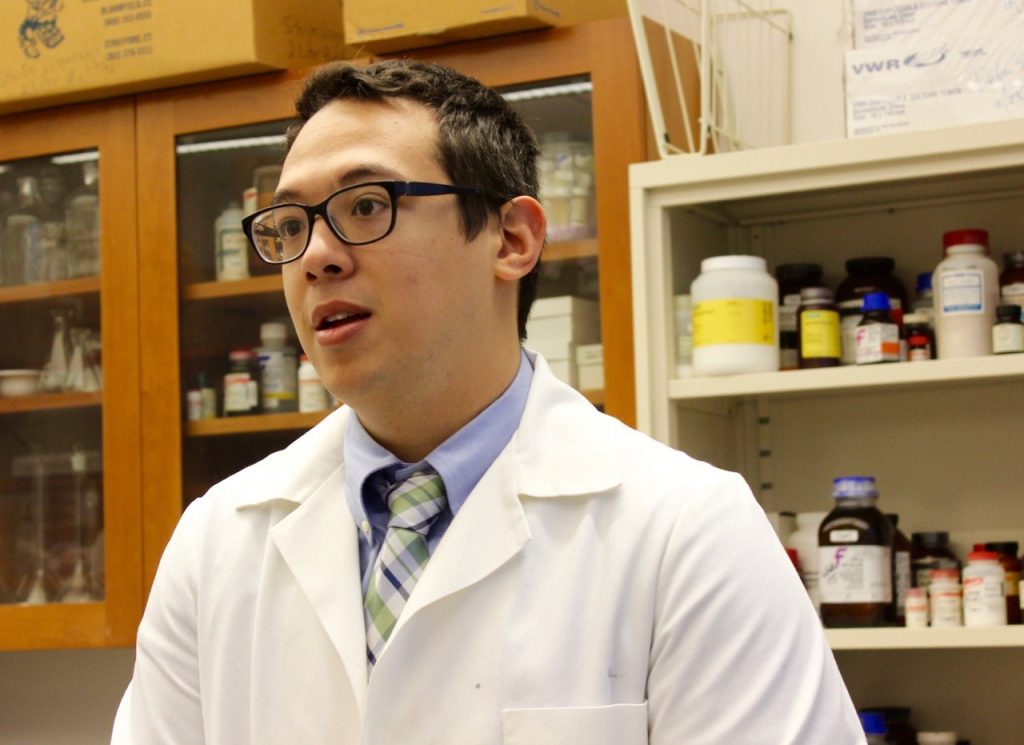
One such student is Brett Chen ’18 Pharm.D., who will begin his P4 year in the fall, doing a rotation in general medicine at Hartford Hospital. He recently completed his honors thesis on “Strategies to Identify the Alloseric Binding Site on CB1” with Kendall. He also studied for several semesters with associate professor of pharmaceutics Bodhi Chauduri, focusing on subjects that are important to the pharmaceutical industry, such as bipolar charging of some material particles of varying sizes, and the effect of humidity on pharmaceutical powder flow.
“When I started my pharmacy studies,” says Chen, “I envisioned myself as being a clinical pharmacist, which means that bench research wasn’t something I’d thought about as a career. But Professor Kendall knew that I was interested in drug development, through my work with Professor Chauduri, and she encouraged me to accept a place in her lab.
Chen says his experience doing research in Kendall’s lab helped him develop skills that extend far outside the lab. “This experience has developed my curiosity and my interest in scientific inquiry, and has actually changed the way I view the world.”
A great motivator
Like Chen, Hine, and Jagla, most of Kendall’s students come from the STEM fields, but there are notable exceptions. Steve Graf ’15 (BUS) was one of those exceptions. In 2013, he made a trip to the African nation of Ghana with Global Brigade, a student organization that focuses on providing health care to developing countries.
Graf discovered that patient compliance, especially in Third World Countries, is compromised because many people are unable to read and follow prescription labels. When Graf returned to campus, he partnered with his friend Charles Fayal ’16 (ENG) to create a simple recording device that allowed physicians to record verbal instructions and send them home with patients. Their work was funded, in part, by a grant from UConn’s Office of Undergraduate Research and the Connecticut Center for Entrepreneurship and Innovation in the School of Business.
Although Graf was a business major focused on health care management, he appreciated the role science would play in his future endeavors. He applied for a Summer Undergraduate Research Fund (SURF) award and was accepted.
Kendall says having a non-science major working in the lab gives everyone a new perspective. “Steve asked different questions. He approached problems slightly differently. And although he was focused on the management side of health care, he wanted to know more about scientific investigation – how researchers go about proving or disproving a hypothesis, and the hurdles they face in the process.”
Graf says he applied to join Kendall’s lab to learn more about the research side of medicine. But what he got out of working there was so much more than just a lesson on research and medicinal sciences.
“Professor Kendall was a great motivator who invoked confidence in her team, and always made me excited to take on new challenges,” he adds. “Not only did I begin to understand medicine in a more intuitive way, I got an entirely new perspective on the medical field as a whole.”
Graf is now working for a major insurance company in health care management, and is also continuing his work implementing audible medical recording devices for illiterate patients in health clinics throughout the world.
